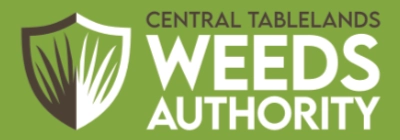Weeds on Roadsides
Roadsides are a lineal high risk pathway in which viable weed material can be transported to new sites. Central Tablelands Weeds Authority is the Local Control Authority for weed biosecurity, however has no landholder biosecurity duties as it does not own any land.
Central Tablelands Weeds Authority have historically for many years, assisted it’s constituent Council’s; Bathurst, Lithgow, Blayney and Oberon in treating their roadsides for weeds. Since the introduction of the Biosecurity Act 2015 (NSW) in 2017, it became clear that tenure neutrality was the intent and in June 2020 Central Tablelands Weeds Authority issued a General Biosecurity Direction for roadsides to their constituent Councils and Forestry Corporation NSW.
Central Tablelands Weeds Authority has since offered a service level agreement and the constituent Councils have willingly accepted, a long term strategy in which to effectively treat the weeds on roadsides. To avoid unnecessary ad-hoc expenditure the strategy involves each constituent Councils areas to be broken into three logical sections. Each section will be allocated a year to be treated in, either 1, 2 or 3. This will ensure that all roads will be treated for weeds at least every 3 years, assisting the constituent Councils to meet their General Biosecurity Duty.
The service level agreement only applies to “Rural roads” to which Central Tablelands Weeds Authority has defined as:
“Rural Road means a Road or section of Road where:
- Buildings if present are spaced more than 100 metres apart; and/or
- Street lights if present are spaced more than 100 metres apart; and/or
- The traffic speed limit is greater than 60kph”
Furthermore the agreement applies to only priority weeds as per the Central Tablelands Local Lands Services Strategic Weeds Management Plan.
Following is a map showing the 3 segments in which each of the local government areas will be broken into and the related year in which it will be treated.

